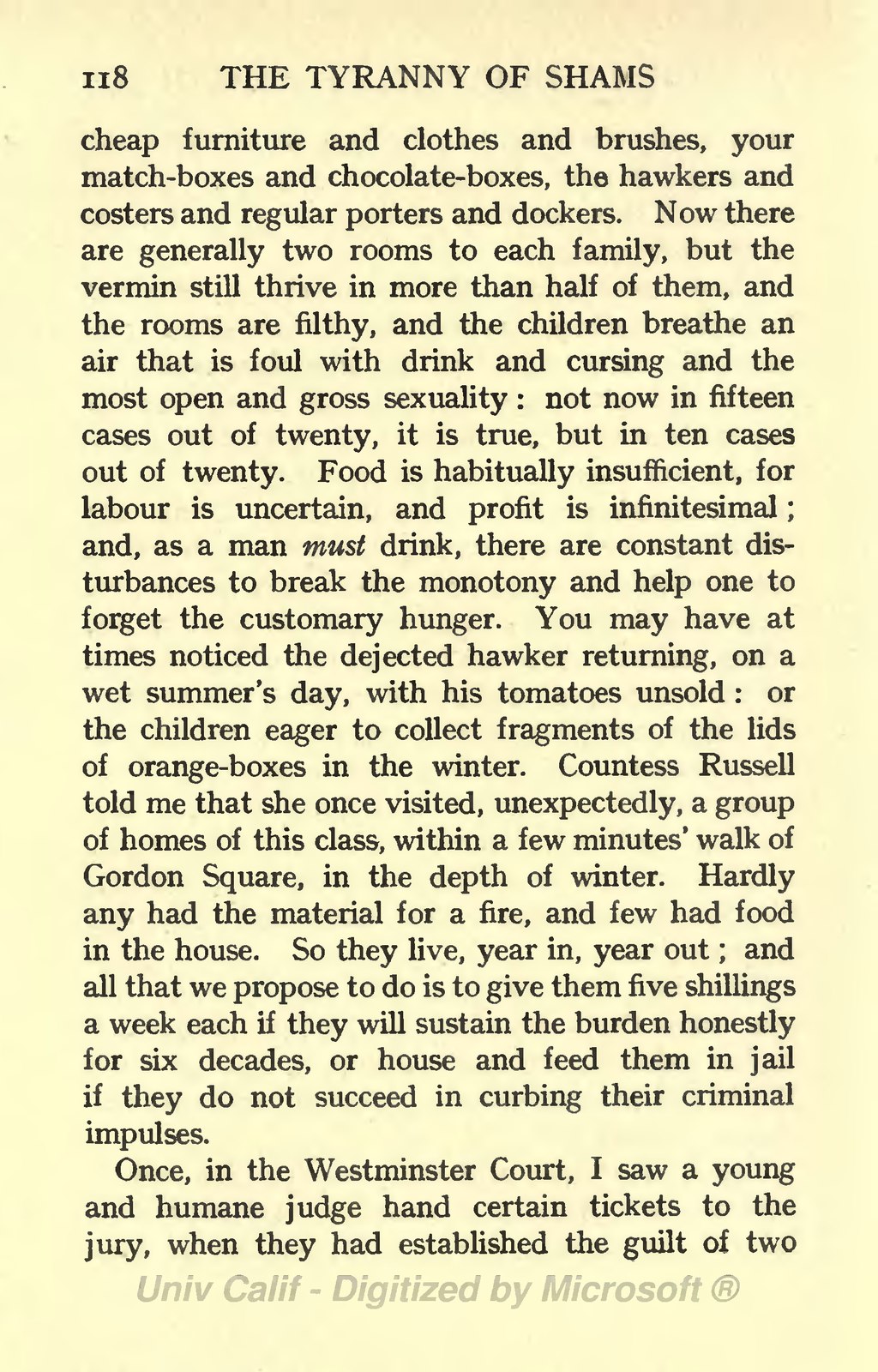cheap furniture and clothes and brushes, your match-boxes and chocolate-boxes, the hawkers and costers and regular porters and dockers. Now there are generally two rooms to each family, but the vermin still thrive in more than half of them, and the rooms are filthy, and the children breathe an air that is foul with drink and cursing and the most open and gross sexuality: not now in fifteen cases out of twenty, it is true, but in ten cases out of twenty. Food is habitually insufficient, for labour is uncertain, and profit is infinitesimal; and, as a man must drink, there are constant disturbances to break the monotony and help one to forget the customary hunger. You may have at times noticed the dejected hawker returning, on a wet summer’s day, with his tomatoes unsold: or the children eager to collect fragments of the lids of orange-boxes in the winter. Countess Russell told me that she once visited, unexpectedly, a group of homes of this class, within a few minutes’ walk of Gordon Square, in the depth of winter. Hardly any had the material for a fire, and few had food in the house. So they live, year in, year out; and all that we propose to do is to give them five shillings a week each if they will sustain the burden honestly for six decades, or house and feed them in jail if they do not succeed in curbing their criminal impulses.
Once, in the Westminster Court, I saw a young and humane judge hand certain tickets to the jury, when they had established the guilt of two
